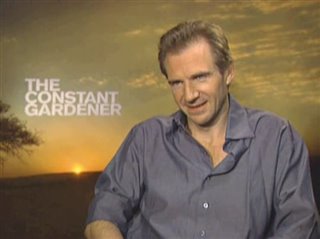

The Constant Gardener is not only a movie that makes you think but also a movie that makes you feel makes you tune into the reality of a continent most of us have never seen. This film has a richness, poise, and depth to it that is few and far between in Hollywood these days.

To say The Constant Gardener is painfully exquisite would be an understatement. The idea of a difference in perspective appears again. Consider the companies who are continually finding new ways to dispose of bodies and digging and planting, and digging and planting, in an effort to conceal the truth. Although it is Justin that is constantly gardening throughout the film, there is a nagging feeling that the title itself is not meant for him. Justin soon suspects those same companies of his whistle blowing wife’s murder and finds himself being followed for learning the truth of corporate cover-ups and mass graves for the sake of profit. The ethical question is “who will miss them?” An entire mass of people who, without the “free” drugs, are dead anyway. The present day scenes then follow Justin as he tries to uncover the mystery of his wife’s death as well as the reality of pharmaceutical companies testing potentially deadly medicines on the poverty stricken villages of Kenya. This method is carried out wonderfully through the knowledge that scenes containing Tessa are flashbacks. The movie is then a series of flashbacks interlaced with the present.

The film follows British diplomat Justin Quaile (Fiennes) and within the first five minutes we see the death of his wife Tessa (Weisz) as well as their first meeting.


 0 kommentar(er)
0 kommentar(er)
